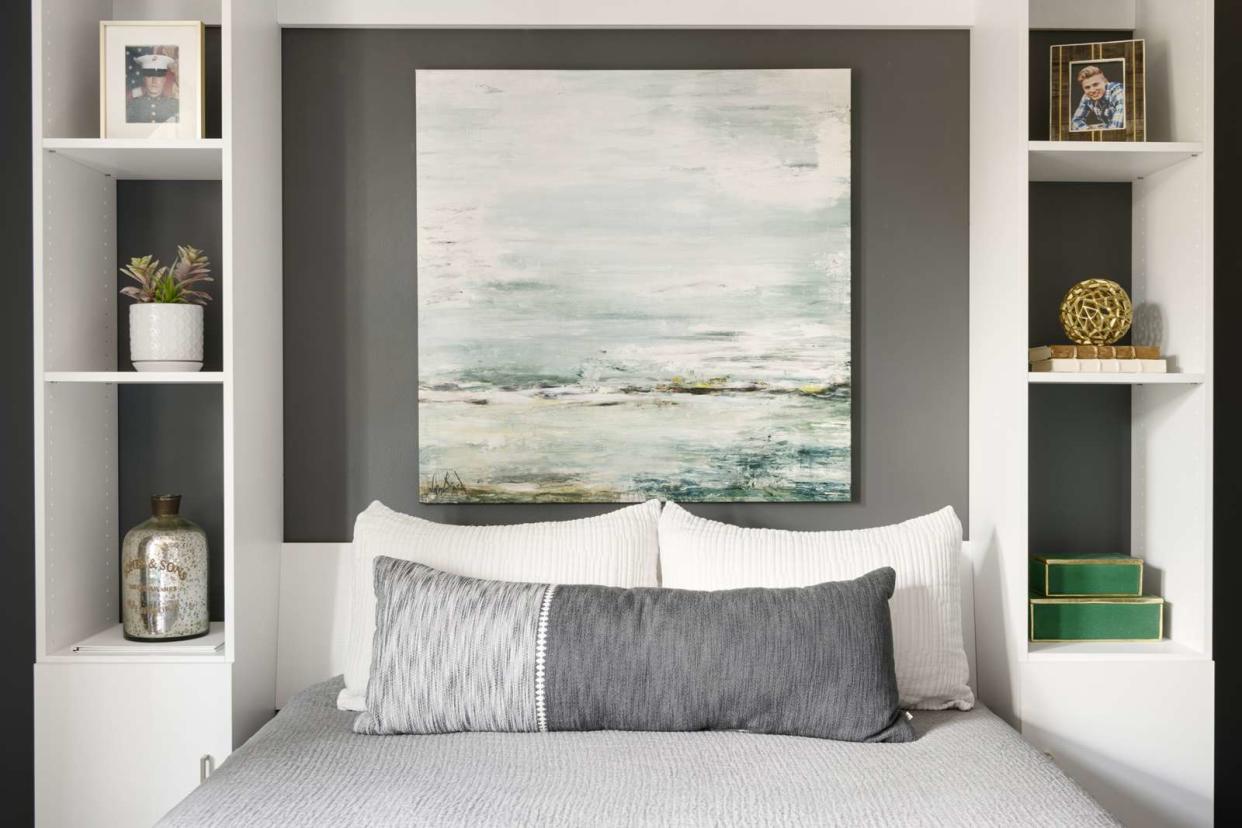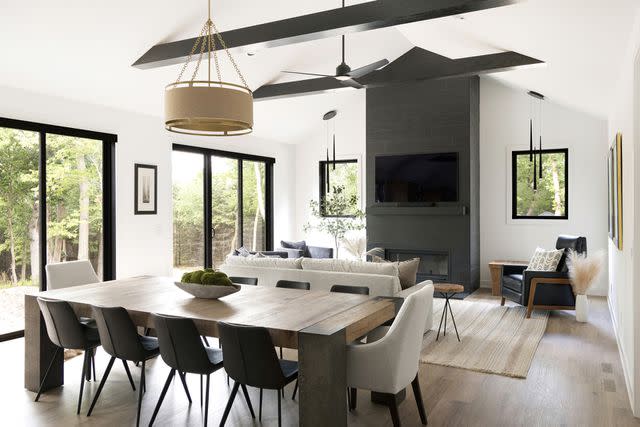6 Red Flags You Should Note When Hiring an Interior Designer, According to Pros

Design by Amy Leferink at Interior Impressions
Choosing to hire an interior designer is no small decision, and if you haven't ever worked with a professional in this capacity before, it can be difficult to fully determine whether a specific person is the right fit.
To ensure that you can kick off your search process as well informed as possible, we spoke with pros who have established themselves in the industry.
Below, they share the major red flags to watch out for along the way as well as seven important questions to ask any designer before hiring them for your project.
The Designer Doesn't Have a Portfolio
It's important to develop a sense of a prospective designer's aesthetic and past work, and therefore, being able to view their online portfolio is a key starting point.
"A designer without a portfolio is a red flag," says Nadia Watts, the founder of Nadia Watts Interior Design. She urges prospective clients to spend time on a designer's website or Instagram, reviewing past projects, press placements, and more.
Within one's design portfolio, photos should be professional quality, says Layton Campbell, the founder of J. Layton Interiors.
"It shows that you're serious and not just dabbling," he says. "If it's on my website, it's been shot by a professional photographer."
The Designer's Education or Background is Unclear
Campbell notes that getting a sense of a designer's background is also a must.
"It's nice to see if someone's got the education behind them," he says. "You want to know that someone has had some background and training versus just deciding they want to be a designer."
The Designer Doesn't Ask You Questions
Designers aren't mind readers, and they should be asking you questions to develop a sense of your specific desires and needs from the get go.
"Even if your tastes align, you inevitably will have personal preferences you want to communicate to your designer," Watts says. "If a designer isn’t asking you about your current design and what you hope to gain and change from hiring a designer, they are missing the mark."
The Designer Wants to Toss All of Your Existing Items
Not only is this approach one that isn't environmentally friendly, it's also not necessary, says Mally Skok, the founder of Mally Skok Design.
"I don't like designers that just dump everything and start again, because then you end up with a project that is not at all personal and has no humanity or narrative of the people that live there," she says.
You and the Designer Aren't Compatible Personality Wise
Watts stresses the importance of meeting a designer in person to develop a better sense of who they are.
"It’s so much easier to measure compatibility this way," she says. After all, she explains, personality is a key factor that should guide your design making process.
"Depending on the scope of your project, you might be spending a lot of time and putting a lot of trust in your designer," she says. "It’s important that you not only trust them, but that you like them."
Questions to Ask an Interior Designer

While your prospective designer should of course be asking you questions, you'll want to have plenty prepared for them, too. Below are a few designer-recommended questions to keep top of mind.
What is your business model?
According to Lissette Fernandez, the founder of Together Home Studio, this is the first question one should ask. If you will be interviewing multiple prospective designers, you need to understand the differences between them, she explains.
"If your prospective designer cannot explain in clear, transparent language how they will be billing you, that's a red flag," she says.
Campbell agrees. "You need to look for honesty and a designer that's going to be very transparent about their business, how they work, and how their design process is," he says.
What is your current availability, estimated project timeline, and minimum budget?
"Designers operate in a wide range of models," Watts says, which is why the above question is so important. "You want to make sure the designer has the availability and bandwidth for your project."
How many hours will my project take?
On a similar note, you'll want to have a clear sense of how long your home project will take before signing any contracts. "If a designer is not willing to estimate the number of hours they think they will spend on your project or explain what they will deliver for that time, that's a red flag," Fernandez says.
How do you manage stylistic expectations?
Determine how much a designer will insert their own style into a project versus tailor to your personal aesthetic, notes Corine Maggio, the founder of CM Natural Designs. "They should have a very clear and specific process in this regard," she says.
Can you describe your design process?
You'll want to fully understand what happens when before embarking on any home project, large or small. "If they cannot clearly articulate the process phases and key milestones along the way, that could be a sign of disorganization behind the scenes and ultimately, a nightmare project waiting to happen," Fernandez says.
What can I share about myself and my home that would be helpful for you to know?
This is another question Watts recommends asking to ensure your designer is fully informed about your family's needs from day one.
How often will I hear from you and your team throughout the different phases?
Communication is a key component of any interior design project, so Maggio recommends asking this question. After all, she says, "You may love the work of a designer, but if they aren't organized, the process can be a drain."
Read the original article on The Spruce.

